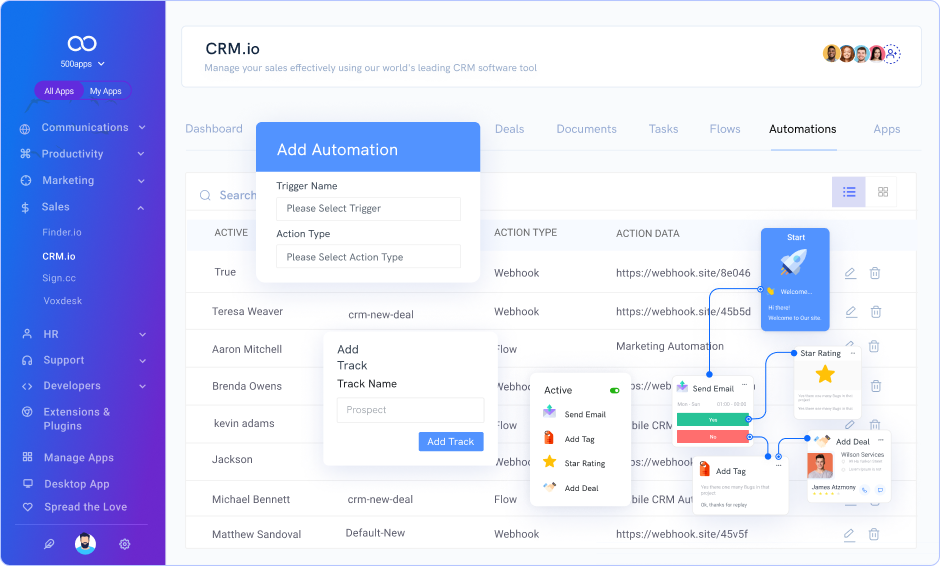Alice's Email Insights
Exploring the world of email communication and technology.
Workflow Wonders: Automate Your Way to Efficiency
Unlock the secrets to ultimate efficiency! Discover dazzling automation tips that transform your workflow and supercharge your productivity.
Maximizing Productivity: The Top 5 Automation Tools You Need
In today's fast-paced world, finding ways to maximize productivity is essential for both individuals and businesses. One of the most effective strategies is to leverage automation tools that can streamline repetitive tasks and free up valuable time. Here are the top 5 automation tools you need to consider:
- Zapier - A powerful tool that connects your favorite apps to automate workflows without any coding.
- Trello - While primarily a project management tool, Trello's automation features can help prioritize and manage tasks efficiently.
- IFTTT - This service allows you to create custom automations, linking different apps and devices to work in harmony.
- Buffer - Perfect for social media management, Buffer automates the scheduling of your posts, ensuring a steady online presence.
- Calendly - Calendar management made easy, Calendly simplifies scheduling by automating meeting setups.

How to Identify Repetitive Tasks for Effective Workflow Automation
Identifying repetitive tasks is the first step towards achieving effective workflow automation. Begin by conducting a thorough analysis of your daily activities. Document each task you perform, no matter how small, and consider using tools like spreadsheets or task management software to keep track. Once you have a clear inventory, categorize these tasks into three main sections: high-frequency, time-consuming, and low-value activities. By prioritizing high-frequency and time-consuming tasks, you can focus on areas that will yield the most significant efficiency gains through automation.
Next, evaluate the processes associated with these identified tasks. Look for patterns or steps that are repeated, which signal potential for automation. For example, consider whether tasks involve data entry, report generation, or managing emails. Utilizing automation tools such as Zapier or Microsoft Power Automate can greatly simplify these repetitive processes. Implementing automation not only saves time but also reduces human error, enhancing overall productivity in your workflow.
The Future of Work: How Automation is Changing Business Efficiency
The future of work is being significantly reshaped by automation, driving businesses to rethink their operational efficiency. As technological advancements continue to evolve, automation tools are becoming increasingly accessible, allowing companies to streamline workflows and reduce manual labor. This shift not only enhances productivity but also allows employees to focus on more strategic tasks. For instance, routine processes such as data entry and customer service inquiries can be efficiently managed by automated systems, freeing up human resources to engage in higher-value work that requires creativity and critical thinking.
Moreover, the integration of automation is paving the way for businesses to achieve unprecedented levels of efficiency. With the help of artificial intelligence and machine learning, companies can analyze vast amounts of data to identify trends and make informed decisions in real-time. This agility not only improves operational responsiveness but also fosters a culture of innovation, as teams can experiment with new ideas and approaches without the constraints of traditional workflows. As we look ahead, the role of automation in business is set to expand, fundamentally transforming how organizations operate and compete in the marketplace.